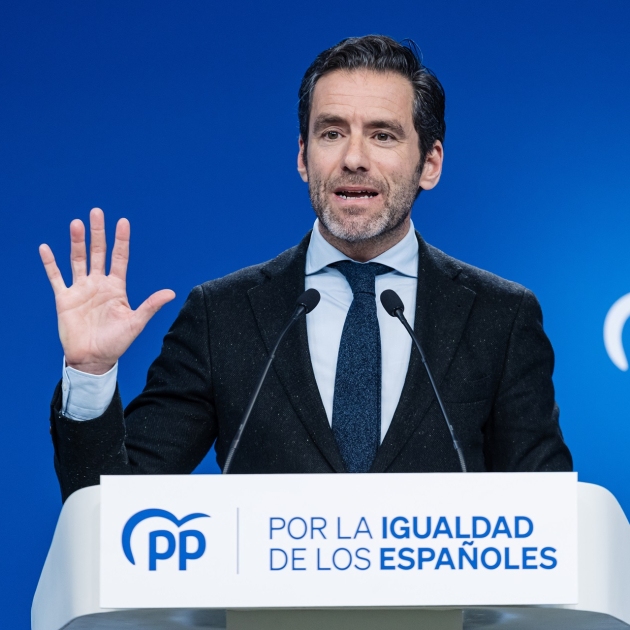The renewal of Spain's General Council of the Judiciary (CGPJ) is, this Monday, more in the spotlight of controversy than ever, with the passing of the uncomfortable milestone of five years since the mandate expired for the Spanish judiciary's organ of governance. With the CGPJ paralysed by political disagreement, the People's Party (PP) has warned this Monday that there will be no renewal of the body if there is no reform of the country's law of the judiciary to increase the independence of the justice system, since the conservative opposition "doesn't have an inch of trust" in Pedro Sánchez's government. This has been confirmed by the PP spokesperson, Borja Sémper, who warned that they will not sit down to talk, if the Spanish government and the governing Socialists (PSOE) do not accept his party's approach. "Please understand that we can't trust Pedro Sánchez, because he lies," said Sémper after Sánchez announced that he would call the PP leader, Alberto Núñez Feijóo, to make changes in the members of the Council.
The PP's reluctance
Speaking in a press conference at PP headquarters, Borja Sémper affirmed that his party has made its position clear, and will not allow itself to be fooled by Pedro Sánchez or enter a vicious circle, since, as he argued, the most important thing is to "deepen the appearance of independence in the judges' governing body". The right-wing party spokesperson insisted that "if prime minister Sánchez changes his position or says what he said before he was head of the Spanish government - 'listen, I am ready to deepen independence of the governing body of the judges and let the judges be the ones who choose the judges', then we will sit down", thus emphasizing the position of the PP.
Sources from the PP made it clear after the press conference that, if there is no reform of the judicial governance legislation in the terms proposed, there is no possibility of renewing the CGPJ. "If there is no reform, there is no renewal", these sources stressed, admitting that the PP is not even willing to sit down to negotiate with the Spanish government unless there is a guarantee or tangible commitment for progress to be made along the lines of depoliticization of the judiciary, as demanded by Europe. The situation of political appointments in the senior Spanish judiciary, however, does not just come from the long-criticised involvement of politicians in the process, but rather, has been complicated by the fierce polarization that now exists within the CGPJ, with rival conservative and progressive blocs of judges, and the conservatives having maintained their majority by means of the five-year blockade.
Lawfare and Pedro Sánchez
Pedro Sánchez has accused the PP of lawfare - that is, the illegal use of the justice system to pursue political objectives - in its refusal to renew the CGPJ, which he considers to have been "taken hostage". Regarding these statements, Sémper assured that it is "more nonsense" from Sánchez from within this "wall that he intends to erect to close himself off and avoid reality". In addition, he added that "Mr Sánchez is taking his old ghosts out for a walk by harassing the opposition." He reminded the Spanish PM of some of the events of the last week: the decision of the Supreme Court "walking back" the appointment of the president of the Council of State, Magdalena Valerio, and the "questioning of the appointment of the chief public prosecutor", Álvaro García-Ortiz. "In a country where the separation of powers is constantly being questioned, Mr Sánchez is the last person able to teach anyone a lesson," declared Sémper, asking the PM for "a little more rationality" and "respect" for the institutions , as well as for the "separation of powers". The spokesperson of the PP compared the situation in which the head of the Spanish government "has given Junts an a la carte amnesty law because it needs its seven votes", while on the other hand it refuses to allow the PP, which "has 137 seats" and was "the winner of the general election", to let the CGPJ appointment process take place "in line with what the EU dictates".
